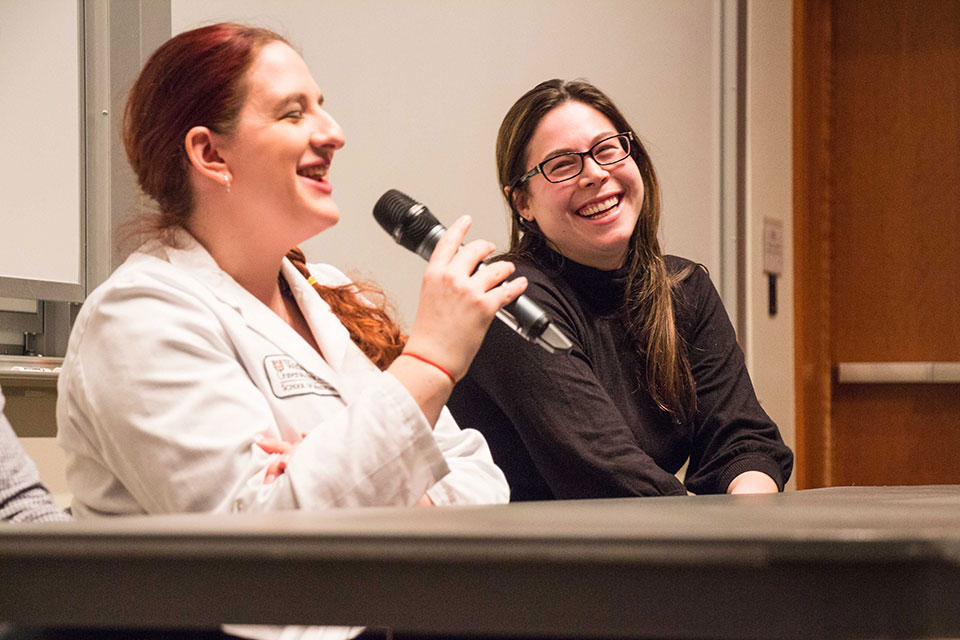
Medical student Desiree Baumgartner laughs as fellow student Elyse Everett addresses a group during a School of Medicine lecture focused on student mental health. Photo credit: Allison Braun
Medical students spend years learning to take care of others but sometimes not enough time learning to take care of themselves, especially when it comes to mental health.
Desiree Baumgartner observed this not only in her fellow classmates but in herself during her second year at Washington University School of Medicine.
“Medical students are bright, ambitious, driven individuals,” said Baumgartner, who soon will graduate with her medical degree. “But they can be terrified of acknowledging any personal struggle for fear that it might mean failure.”
Baumgartner learned that depression and anxiety can be hard to accept and, consequently, that they often go unaddressed. She saw these struggles in some of her classmates and recognized a resistance to seeking help.
She knew she had to do something, so she and classmate Elyse Everett approached Lisa Moscoso, MD, PhD, associate dean for student affairs, and asked if it would be possible to add a lecture about mental health to the curriculum for first- and second-year medical students.
“Dr. Moscoso was extremely supportive,” Baumgartner said, adding that Moscoso helped recruit Karen Winters, MD, director of Student & Occupational Health Services at the medical school, and two psychologists for the presentations.
The lecture was designed to outline support available on the Medical Campus and to help de-stigmatize mental illness and treatment for it. The overriding message: You have to take care of yourself first if you expect to take care of others.
At the beginning of each lecture, Winters assures students that being diagnosed with depression or anxiety, receiving counseling, or taking medication will not prevent them from becoming doctors. But what will stand in the way, she continues, is if they let their personal struggles spiral out of control and affect their judgment and clinical training.
Baumgartner, Everett and other classmates share personal stories during the lectures to encourage openness on the topic.
Winters said she’s had several students visit her office after the lectures, saying the talks encouraged them to seek help for themselves or a friend.
“We never expected such an immediate impact,” Baumgartner said. “It has been extremely gratifying.”
Fittingly, Baumgartner has decided to pursue psychiatry. She recently learned she will do her residency training at Barnes-Jewish Hospital.
Everett will stay in St. Louis, too. Her residency training, in neurology, will also be at BJH.